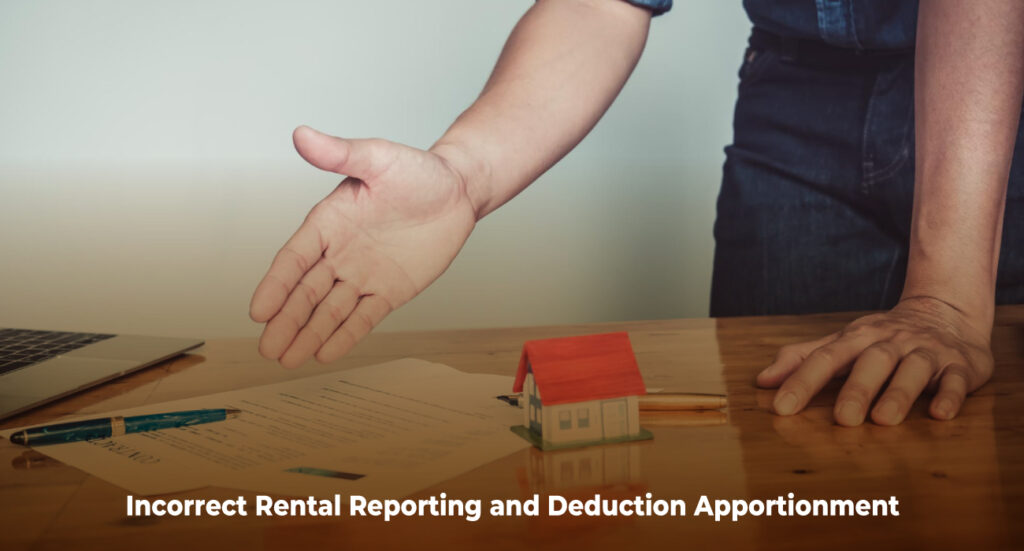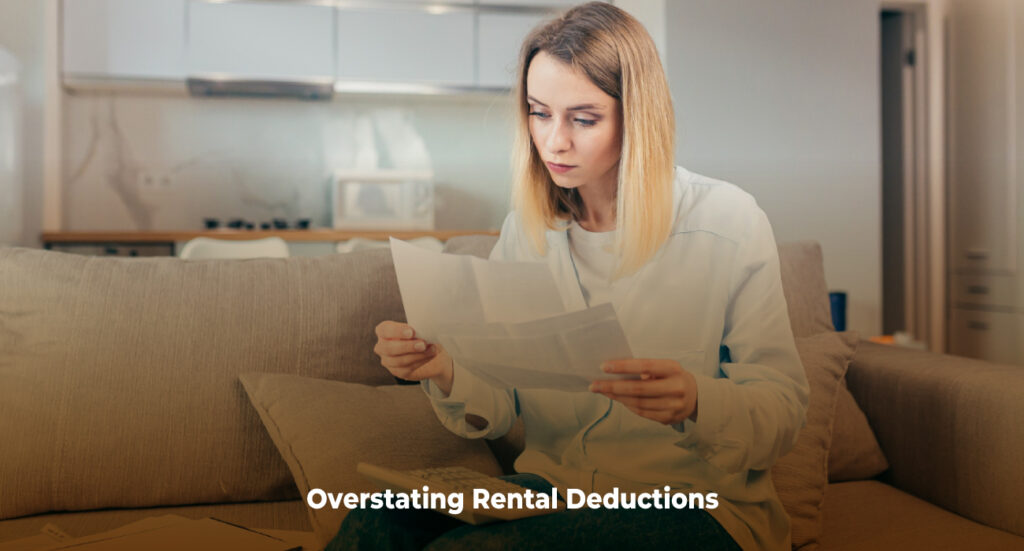What Triggers an ATO Audit on Property Claims – and How to Avoid It in 2025
As tax time approaches, property investors must tread carefully. Following the 2025 Federal Budget, the Australian Taxation Office (ATO) has received a significant funding boost aimed at strengthening compliance and audit programs, particularly in areas prone to incorrect claims—like rental property deductions.
At Investax, we’ve already seen a noticeable increase in ATO audit activity since the Budget announcement. Property investors—especially those with multiple properties or large deductions—are now under sharper scrutiny. A simple mistake on your investment property claim could land you in hot water, or worse, in the middle of a costly and time-consuming audit.
So, what exactly triggers an ATO audit—and more importantly, how can you steer clear in 2026?

Incorrect Rental Reporting and Deduction Apportionment
Accurate reporting of rental income and proper apportionment of expenses are key areas the ATO monitors closely—especially in 2025 with enhanced data-matching capabilities. Many property investors mistakenly claim 100% of expenses, even when their property was only available for rent part of the year or used privately for short stays.
This often happens when properties are listed on Airbnb or similar platforms, or when the owner blocks out dates for personal use but doesn’t adjust the claim. The ATO now cross-checks rental listings, tenancy records, and even utility data to verify when a property was genuinely income-producing. If the expenses seem too high relative to income—or if the property was not available for rent for the entire year—it’s a clear audit risk.

Overstating Rental Deductions
One of the most common triggers for an ATO audit is when rental property deductions appear unusually high in relation to the rental income declared. The ATO uses advanced data-matching technology to compare your claim against other investors claims benchmarks they created over the years and data from third parties like real estate agents, loan providers, insurance companies, and utility providers.
For instance, if your total expenses far exceed what’s typical for a similar property in your suburb—or if you’re consistently reporting a rental loss year after year—the system may flag your return for closer examination.
Common mistakes include claiming 100% of interest on a loan that was partially used for personal purposes or deducting body corporate fees and council rates during a vacancy period when the property wasn’t genuinely available for rent.

Large Repairs That Are Actually Improvements
Repairs and maintenance remain one of the most heavily scrutinised deductions by the ATO—and one of the most misunderstood by property investors. Many taxpayers genuinely believe they’re making a valid claim but fail to distinguish between repairs, maintenance, and capital improvements.
A repair is work that restores something to its original condition—like fixing a leaking tap or replacing broken tiles. Maintenance refers to routine upkeep to prevent deterioration, such as servicing the air conditioner. These are generally deductible in the year the cost is incurred, but only if the property is already available for rent.
In contrast, capital improvements—like replacing an entire kitchen, remodelling a bathroom, or upgrading from carpet to timber floors—must be capitalised and depreciated over time. Claiming these upfront as repairs is a common error that may trigger an audit.
A frequent audit scenario we see involves strata-titled apartments. When a building suffers major water damage or structural issues, the strata may undertake large-scale renovations. While the strata handle the work, unit owners are often required to contribute via special levies. Many investors mistakenly claim these levies as repairs, even though they fund substantial upgrades or improvements to common property.
Tip: If you’ve paid a special levy or carried out any substantial work, check whether it relates to routine repairs or long-term improvements. If it’s the latter, you’ll need to capitalise the cost and potentially claim depreciation. When in doubt, seek advice—this is one of the most common and costly areas where investors get it wrong.

Double Dipping on Depreciation
Since the major rule change in May 2017, the ATO has continued to crack down on incorrect depreciation claims, particularly those involving second-hand residential properties.
Under the current rules, investors can no longer claim depreciation on second-hand plant and equipment (like air conditioners, dishwashers, ovens, carpets, etc.) if the property was previously owned and used. This restriction applies even if those assets are in working condition at the time of purchase. You can still claim building depreciation (capital works) and plant and equipment only if it was brand new or purchased directly by you.
Five years on, the ATO now has a solid bank of comparative data and uses it to detect inconsistencies. If your depreciation schedule shows claim that seem unusually high—or if you’re claiming plant and equipment depreciation on a second-hand property purchased after the rule change—you’re at high risk of audit.
A common mistake occurs when investors purchase a used property and continue to claim depreciation from an old schedule prepared for the previous owner. This is considered double dipping and is strictly disallowed.

Renting to Family or Friends at Below-Market Rates
Renting your investment property to family or friends might feel like a generous gesture, but if you’re charging below-market rent, you must adjust your deductions accordingly. In 2025, many property owners are learning this the hard way—through ATO audits and deduction rejections.
The ATO now has strong data-matching tools that allow it to compare your reported rental income with average market rates in your area, drawing on data from their own data, real estate portals, rental listings, and tenancy databases.
If the rent you’re charging is noticeably lower than comparable properties nearby—even if it’s only $50 per week less—it may no longer be considered a fully income-producing property. In such cases, your tax deductions must be reduced proportionately to reflect the non-commercial nature of the arrangement.
We’ve seen particular audit focus on properties rented to parents, children, siblings, or extended family members, especially where no formal lease agreement exists, or rent payments are irregular or paid in cash.

Claiming Unusual Amounts of Interest
Interest deductions are another area where property investors frequently get caught out—often without realising they’ve done anything wrong. Many still assume that any interest linked to their investment property loan is fully tax-deductible, even when the funds were redrawn or accessed for private use.
This misunderstanding becomes even riskier in an environment of falling interest rates. If you’ve claimed a higher interest deduction than the previous year, while rates are going down, the ATO may take a closer look.
So, if you’re claiming more interest than the previous financial year, the ATO will often assume you’ve accessed equity from your investment property. If that additional borrowing was used to pay off a personal loan, buy a car, fund a holiday, or renovate your principal place of residence, then that portion of interest is not deductible—even if it’s technically linked to your investment property loan account.
We’ve seen audits triggered simply because the interest claim jumped significantly, and the taxpayer couldn’t show that the additional borrowing was used for income-producing purposes.

Lodging Your Return Too Early or Too Late
Timing matters more than most people realise when it comes to lodging your tax return—lodging too early or too late can both raise red flags with the ATO.
Rushing to lodge your return too early, especially in July, can lead to mistakes. Many third-party data sources—like banks, share registries, property managers, and private health insurers—don’t finalise and report information to the ATO until late July or even August. If you lodge before pre-fill data is complete, there’s a high chance you’ll omit income or incorrectly report deductions, which could trigger a review later down the track.
On the flip side, consistently lodging late or missing the deadline without a valid reason may draw unwanted attention. The ATO tracks compliance history, and repeated late lodgements—particularly by property investors or high-income earners—can result in stricter scrutiny or even penalties.
What Should You Do Next?
With the ATO ramping up audits and using more advanced tools than ever before, property investors can no longer afford to take a casual approach to their tax returns. From overstated deductions to incorrect apportionment and mismatched income reporting, even innocent mistakes can lead to penalties, interest, or a full audit.
An accounting fee paid to a good accountant should be seen as an investment—not a cost. Especially when that fee is 100% tax deductible, it makes sense to work with someone who understands the complexity of property tax. If your current accountant isn’t experienced in investment property matters, maybe it’s time to give Investax a go.
Book a complimentary consultation with one of our property tax specialists. We’ll review your situation, ensure your claims are compliant and maximised, and help you avoid the common traps that trigger ATO audits in 2025.
General Advice Warning
The material on this page and on this website has been prepared for general information purposes only and not as specific advice to any particular person. Any advice contained on this page and on this website is General Advice and does not take into account any person’s particular investment objectives, financial situation and particular needs.
Before making an investment decision based on this advice you should consider, with or without the assistance of a securities adviser, whether it is appropriate to your particular investment needs, objectives and financial circumstances. In addition, the examples provided on this page and on this website are for illustrative purposes only.Although every effort has been made to verify the accuracy of the information contained on this page and on our website, Investax Group, its officers, representatives, employees and agents disclaim all liability [except for any liability which by law cannot be excluded), for any error, inaccuracy in, or omission from the information contained in this website or any loss or damage suffered by any person directly or indirectly through relying on this information.





